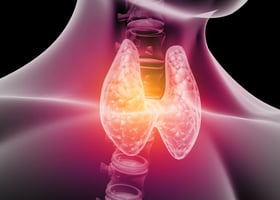Patients With Major Depressive Disorder May Benefit From Interpersonal and Social Rhythm Therapy
 |
The analysis included 30 patients who received 12 months of interpersonal psychotherapy, which focuses on a person’s family and social relationships, coupled with social rhythm therapy; 19 patients had bipolar disorder and 11 had major depressive disorder. For the first 10 to 12 weeks, the participants received weekly sessions followed by sessions every two weeks and then monthly. These patients were part of larger clinical trial at the University of Otago Christchurch in New Zealand exploring whether add-on cognitive therapy can make interpersonal and social rhythm therapy (IPSRT) more effective.
The researchers assessed both depression severity (using the Quick Inventory of Depressive Symptoms–Self-Reported [QIDS-SR] scale and the Longitudinal Interval Follow-Up Evaluation) and social impairment (using the Social Adjustment Scale) in the participants; the assessments were done at the beginning and end of the study. The researchers found that the patients with major depression showed large reductions in both their depressive symptoms and social impairment. For example, their QIDS-SR scores dropped from an average of 13.1 to 6.8, which is considered a strong improvement.
“The emphasis on both the stabilization of the social rhythms that underpin circadian rhythms and the treatment of interpersonal issues may have contributed to the improvement in both mood and functioning,” wrote Marie Crowe, R.N., Ph.D., of the University of Otago Christchurch and colleagues.
“Improvement in social functioning is important because these improvements do not automatically follow [improvement in] depressive symptoms,” the authors continued. “This is of particular interest because psychosocial impairment is a risk factor for recurrence of mood episodes.”
To read more on this topic, see the Psychiatric News article “Could Chronotherapy Provide Relief to Patients With Mood Disorders?”
(Image: iStock/sturti)
Follow Psychiatric News on Twitter!
And check out the new Psychiatric News Brief on Alexa-enabled devices.
And check out the new Psychiatric News Brief on Alexa-enabled devices.





